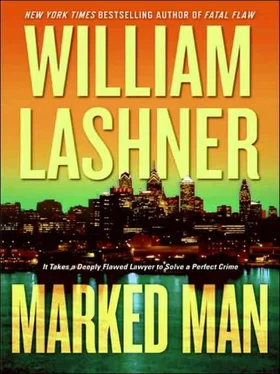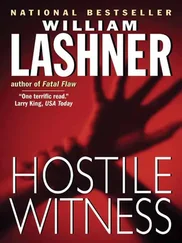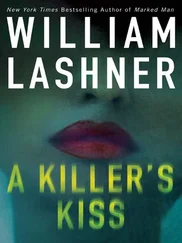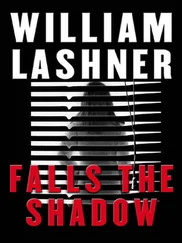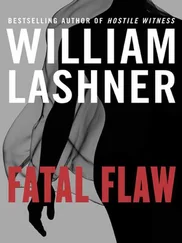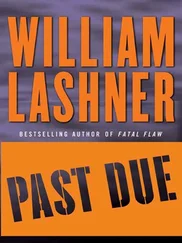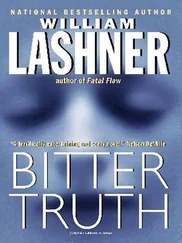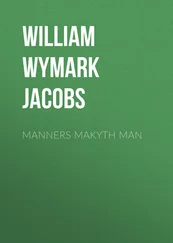“And he used that power to force a mother to give up her child.”
“He used that power to protect his daughter from a woman who didn’t know how to care for her. All your client wants now is the money that comes with custody. Be aware that my client will continue to protect his daughter by any means necessary.”
“Is that a threat? Because I’ve been expecting one, Arthur, from the moment I got involved.”
“Not a threat at all, Victor,” said Gullicksen. “Just a friendly piece of advice. Mr. Hewitt is willing to allow supervised visitations for your client.”
“She already turned that down. We want joint custody, fifty-fifty.”
“Too bad. I hate to keep a mother from at least seeing her child. What’s in the file you so carefully clutch to your chest?”
“Oh, odds and ends,” I said.
“I have a red file folder of my own. It’s a neat trick. I couldn’t help noticing that you’re involved in a highly sensitive case involving a fugitive and a painting. I hope nothing that happens here will in any way interfere with your efforts on behalf of your other client.”
“Now, that does sound like a threat.”
“As I said, Mr. Hewitt has much influence and many friends. Including Mr. Spurlock of the Randolph Trust.”
“Let’s keep our focus on a mother trying to regain her daughter.”
“Okay, Victor, then I must ask. What do you really know about Theresa Wellman?”
“She had a rough patch,” I said, “but she says she’s changed.”
“Is that what she says?” Gullicksen smiled at me like I had just told an amusing little anecdote. “Tell me, Victor, when did you start believing in the Easter Bunny?”
Judge Sistine was a large,humorless woman with the forearms of a bear. She sat stone-faced on the bench, taking notes, as I questioned Theresa Wellman. I sneaked glances up at her every now and then to see how Theresa’s story was playing, but Judge Sistine was too good a jurist to show her hand. Still, I had little doubt that the testimony was having an effect.
It was Theresa doing the telling, that’s the way it is in direct examination, but it was my questions that created the setting, that decided where was the beginning, that maintained the pace, that ensured the telling details made it into the record, that slowed everything down at the most emotionally painful parts, giving Theresa the space she needed to break into tears. Nothing lubricates the wheels of justice like a few tears.
It was the classic story of a girl, sheltered and innocent, who is swept off her feet and into a fast and thrilling lifestyle by an older, wealthy man. Gullicksen objected from the start, claiming that none of this was relevant to the matter at hand, but I stated that the background was crucially important, and the judge agreed with me. So I put it all out there and on the record, the parties, the travel, the fine clothes, the luxury apartment, the important people who were suddenly paying attention. It was glamorous, it was exotic, it was simply too fabulous for a young girl from West Philly to turn down. A fantasy come true, with a darkness at the center, because at the center of it all was the unequal relationship between the young woman and the powerful, older man, Bradley Hewitt.
“Let’s go into some details about these parties you mentioned, Theresa,” I said. “Was there drinking?”
“Oh, yes. Wine at dinner, of course, Bradley liked his wine. Often champagne. Liqueurs after dinner and then more champagne or maybe really fine Scotch.”
“Did you drink much before meeting Mr. Hewitt?”
“My parents weren’t drinkers.”
“But you drank with Mr. Hewitt.”
“He developed my taste.”
“Were there any other intoxicants at these parties?”
“Marihuana,” she said. “Cocaine often. Pills.”
“Did you have much experience with drugs before meeting Mr. Hewitt?”
“No, not really.”
“You grew up in West Philly, isn’t that right?”
“I went to a parochial school, Mr. Carl. The nuns were very strict.”
“Did Bradley partake of drugs at these parties?”
“Not so much, but he encouraged the others. And he encouraged me. Strongly. He said he liked having sex when I was stoned.”
“And you acquiesced to his requests.”
“Yes.”
Slowly, we went through the hints of violence, the cheating, the humiliations, the verbal abuse. I didn’t have her go into the physical abuse, since there were no witnesses to it, Bradley Hewitt would just deny it, and I wasn’t quite sure if I believed it anyway. Instead we focused on the pregnancy, Bradley Hewitt’s demand that Theresa have an abortion, her refusal, the bitter end of the fantasy as the relationship died. The birth, the sporadic support from the new child’s father, his complete lack of interest in the baby, her need for more child support, the petition, the response, the fear, the decision to give up her custodial rights in exchange for a financial settlement.
“Why would you do such a thing, Theresa? Why would you agree to give up custody?”
“I thought I had no choice.”
“There’s always a choice, isn’t there?”
“He was too powerful. My lawyer said he would win. I made a mistake. What can I say, Mr. Carl? I think about it every day. I guess I was afraid.”
“Afraid of what?”
“Afraid of what Bradley would do to me if I kept fighting.”
“Are you sure it wasn’t fear of what would come out at the hearing?”
“I admitted I was having some problems at the time.”
“It was more than just a few problems, though, wasn’t it?” I said as I picked up the big red file folder, opened it, looked inside.
“I was going through things,” she said.
“What kind of things?”
“I was drinking.”
“How much?”
“Too much.”
“How often?”
“A lot.”
“Every day, right? Day and night, even while you were caring for your daughter.”
“I always cared for my daughter.”
“Were you using drugs, too?”
“Not really.”
“Theresa?” I said, waving the big red file folder.
“Some.”
“How much?”
“What are you doing, Mr. Carl?”
“I’m trying to understand a crucial decision in your life. Not every mother agrees to give up the custody to her daughter. Were you addicted to drugs at the time you made that agreement?”
“I don’t think I was addicted.”
“What were you using?”
“Nothing much.”
“Marihuana?”
“Yes.”
“Cocaine?”
“Some.”
“Crack?”
“Mr. Carl, stop this. What are you doing? I just want my daughter back.”
“Were you using crack cocaine at the time you sued for child support?”
“I tried it.”
“How often did you use it?”
“I don’t know.”
“Yes you do, Theresa. You were addicted to it, weren’t you?”
“I don’t know.”
“But you do know, don’t you? How much was a chunk of crack? Five bucks? And how often did you smoke it? How many times a day, Theresa?”
“I was having a hard time.”
“Constantly, right? As much as you could, right?”
“It’s a disease.”
“So how did you pay for it all, the drinking and the drugs, the rent on your apartment?”
“I lost the apartment.”
“Not right off. For a while you kept up with the rent. How did you pay for everything?”
“I had my job.”
“Until you were fired, right? For coming in late too many times.”
“I was a single mother.”
“How did you pay for everything, Theresa?”
“I found a way.”
I looked inside the file folder. “Do you know a man named Herbert Spenser?”
Читать дальше
